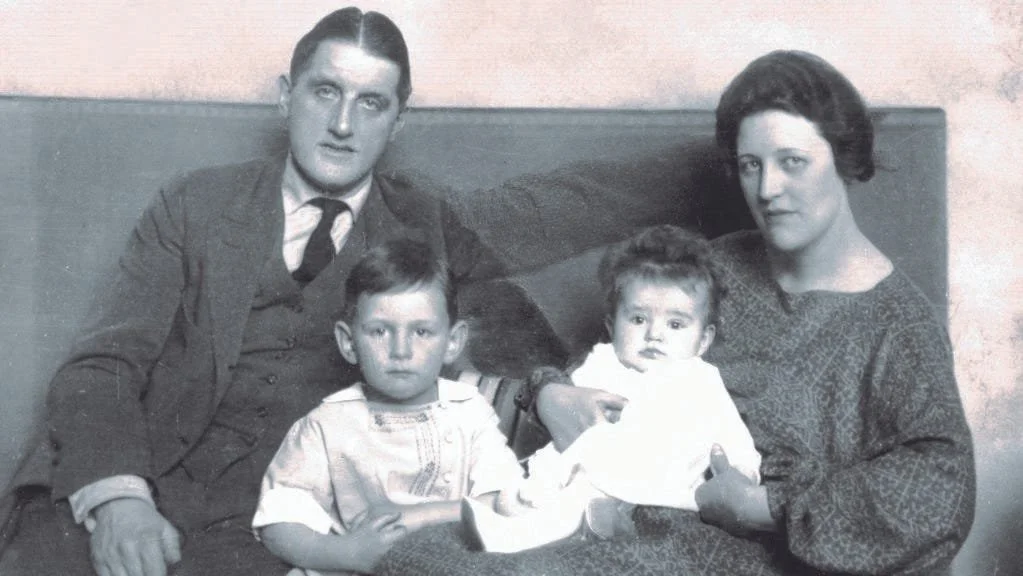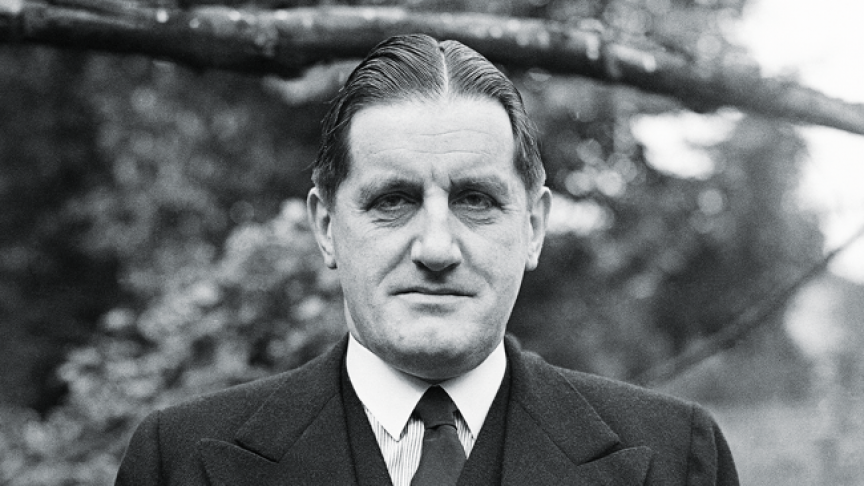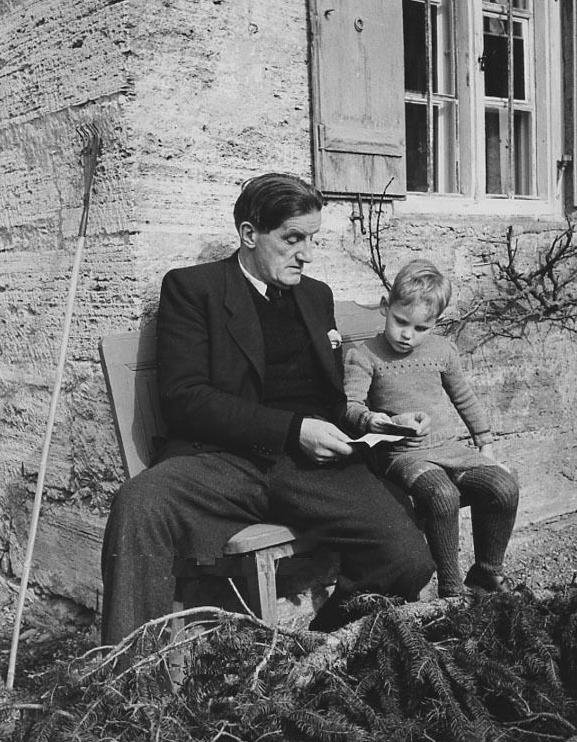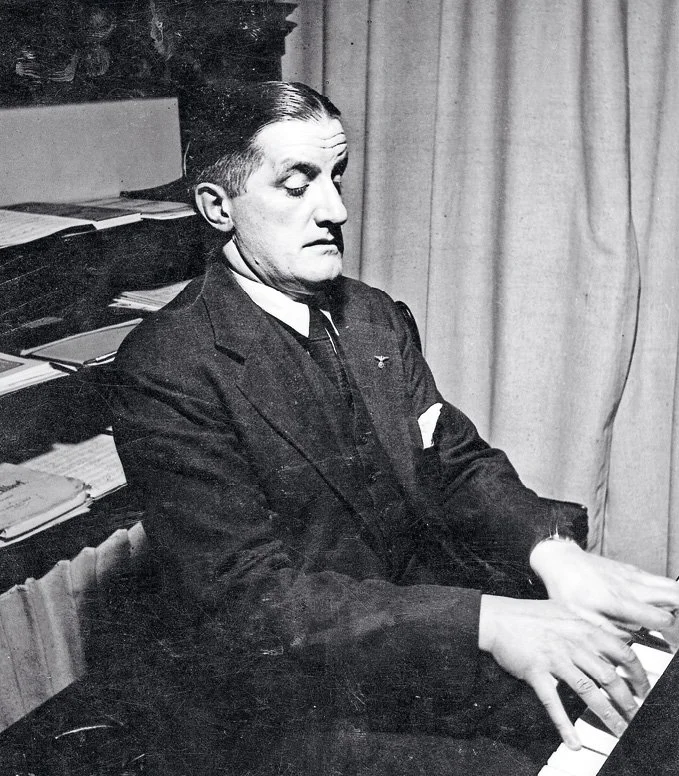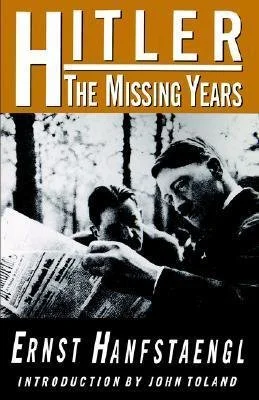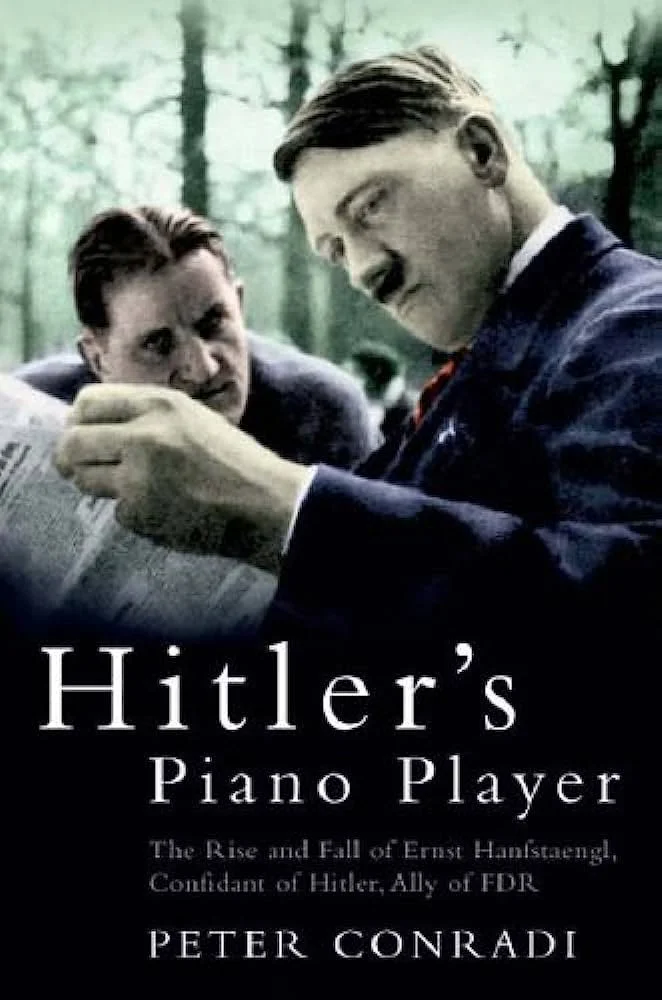Ernst Hanfstaengl
“Putzi”.
Ernst Hanfstaengl, nicknamed "Putzi", was born in Munich, Bavaria, Germany, the son of a German art publisher, Edgar Hanfstaengl, and an American mother. He spent most of his early years in Germany and later moved to the United States
Upon the outbreak of World War I, he asked the German military attaché in New York Franz von Papen to smuggle him back to Germany. Slightly baffled by the proposal, the attaché refused and Hanfstaengl remained in the U.S. during the war. After 1917, the American branch of the family business was confiscated as enemy property.
On 11 February 1920, Hanfstaengl married Helene Elise Adelheid Niemeyer of Long Island. Their only son, Egon Ludwig, eventually enlisted in the US Army Air Corps. A daughter, Hertha, died at the age of five.
Although not a founder of the DAP or even an early member i thought it wise to add Putzi on “the beginnings” page due to the massive impact he had on Hitler at this time.
Hanfstaengl introduced himself to Hitler after the speech and began a close friendship and political association that would last through the 1920s and early 1930s. After participating in the failed Munich Beer Hall Putsch in 1923, Hanfstaengl briefly fled to Austria, while the injured Hitler sought refuge in Hanfstaengl's home in Uffing, outside of Munich. Hanfstaengl's wife, Helene, dissuaded Hitler from committing suicide when the police came to arrest him.
For much of the 1920s, Hanfstaengl introduced Hitler to Munich high society and helped polish his image. He also helped to finance the publication of Hitler's Mein Kampf, and the NSDAP's official newspaper, the Völkischer Beobachter (People's Observer). Hitler was the godfather of Hanfstaengl's son Egon. Hanfstaengl composed both Brownshirt and Hitler Youth marches patterned after his Harvard football songs and, he later claimed, devised the chant "Sieg Heil".
When Winston Churchill was staying at the Hotel Regina in Munich in late August 1932, Hanfstaengl introduced himself and said he could easily arrange a meeting with Hitler there since he came to the hotel every evening around five o'clock. At that time Churchill said he had no national prejudices against Hitler and knew little of his "doctrine or record and nothing of his character." In the course of the conversation with Hanfstaengl, however, Churchill said: "Why is your chief so violent about the Jews? I can quite understand being angry with the Jews who have done wrong or who are against the country, and I understand resisting them if they try to monopolise power in any walk of life; but what is the sense of being against a man because of his birth? How can a man help how he is born?"
He made his way to Switzerland and, after securing his son Egon's release from Germany, he moved to Britain, where he was imprisoned after the outbreak of the Second World War. He was later moved to a prison camp in Canada. In 1942, Hanfstaengl was turned over to the US, worked for US President Franklin Roosevelt's "S-Project" and revealed information on approximately 400 Nazi leaders. He provided 68 pages of information on Hitler alone, including personal details of Hitler's private life, and he helped Professor Henry Murray, the director of the Harvard Psychological Clinic, and psychoanalyst Walter Charles Langer and other experts to create a report for the Office of Strategic Services, in 1943, designated the Analysis of the Personality of Adolph Hitler.
Hanfstaengl wrote Unheard Witness (1957), which was later re-released as Hitler: The Missing Years, about his experiences.
Hanfstaengl died in Munich in 1975.
His story was told by author Peter Conradi in his book Hitler's Piano Player: The Rise and Fall of Ernst Hanfstaengl, Confidante of Hitler, Ally of FDR.
As the NSDAP consolidated its power, several disputes arose between Hanfstaengl and Germany's Propaganda Minister, Joseph Goebbels. Hanfstaengl was removed from Hitler's staff in 1933. He and Helene divorced in 1936. Hanfstaengl fell completely out of Hitler's favour.
In 1937, Hanfstaengl received orders to parachute into an area held by the nationalist side of the Spanish Civil War, to assist in negotiations. While on board the plane he feared a plot on his life and learned more details from the pilot about the mission, who eventually admitted he had been ordered to drop Hanfstaengl over Republican-held territory, which would have meant almost certain death. The pilot eventually landed on a small airfield near Leipzig after claiming an engine malfunction following a brief talk with Hanfstaengl, which allowed him to escape.
Watch My Biography of Putzi
Putzi betrays Hitler
Born
Ernst Franz Sedgwick Hanfstaengl
2nd February 1887
Munich, Kingdom of Bavaria, German Empire
Died
6th November 1975 (aged 88)
Munich, Bavaria, West Germany
